Publications
Articles, publications, books, tools and multimedia features from the U.S. Institute of Peace provide the latest news, analysis, research findings, practitioner guides and reports, all related to the conflict zones and issues that are at the center of the Institute’s work to prevent and reduce violent conflict.
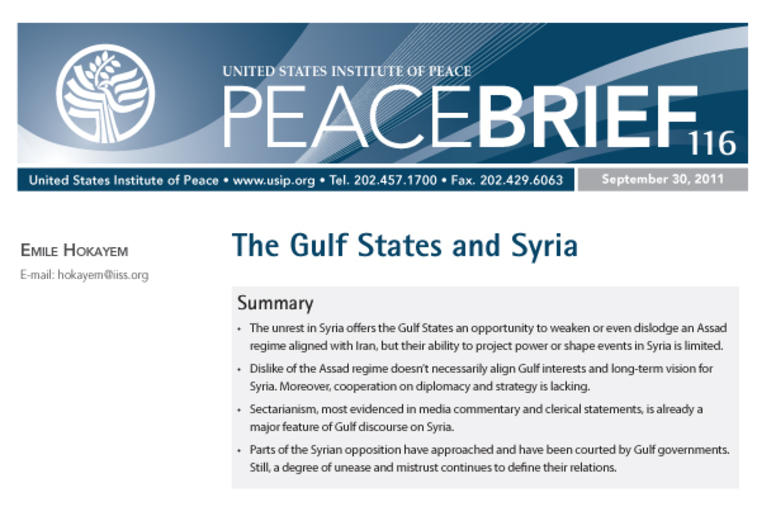
The Gulf States and Syria
The brief examines the interests, connections and dimensions of Syria's popular uprising in the Arab Gulf states. Emile Hokayem is the Senior Fellow for Regional Security at the International Institute for Strategic Studies-Middle East based out of Mamana, Bahrain.
A Troubled Palestinian Economy
Palestinians have not yet been able to build “the foundations of a sustainable economy,” Mohammad Mustafa, chairman and CEO of The Palestine Investment Fund, told an audience at the “Twenty Years after Madrid” conference at the United States Institute of Peace on Nov 2.
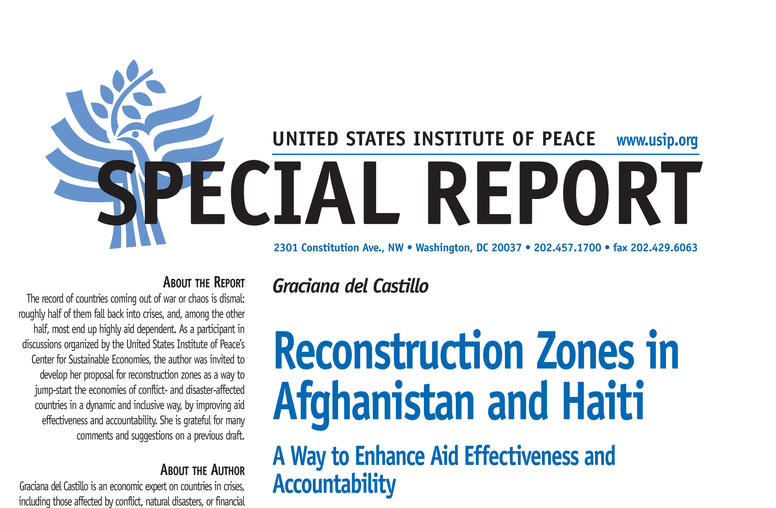
Reconstruction Zones in Afghanistan and Haiti
The record of countries coming out of war or chaos is dismal: roughly half of them fall back into crisis. Among the other half, most end up highly aid dependent. The author of this Special Report was invited to develop her proposal for reconstruction zones as a way to jump-start the economies of conflict- and disaster-affected countries in a dynamic and inclusive way, by improving aid effectiveness and accountability.
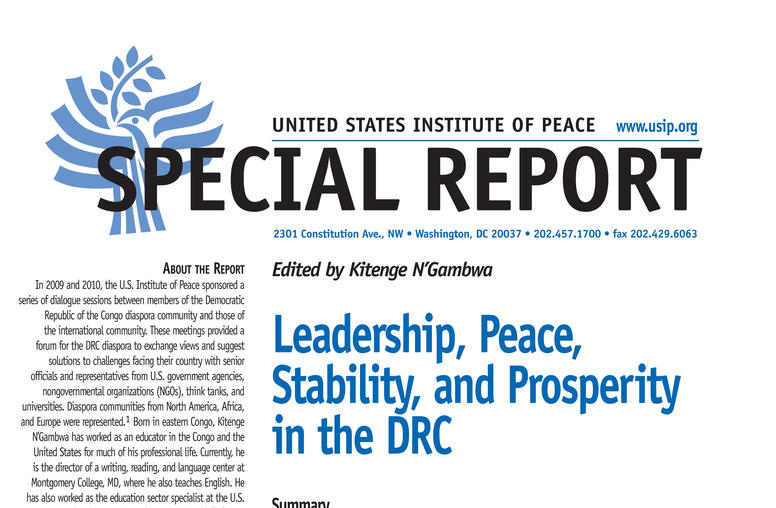
Leadership, Peace, Stability, and Prosperity in the DRC
People living in the DRC should band together with Congolese diaspora to develop a vision for DRC’s future that can drive governance reform. In this Special Report, diaspora leaders share ideas for invigorating the economy, judiciary, health, education, and democracy.
World Recognizes International Day of Peace
To honor this worldwide event, USIP presents some highlights of peacebuilding around the world in 2011.
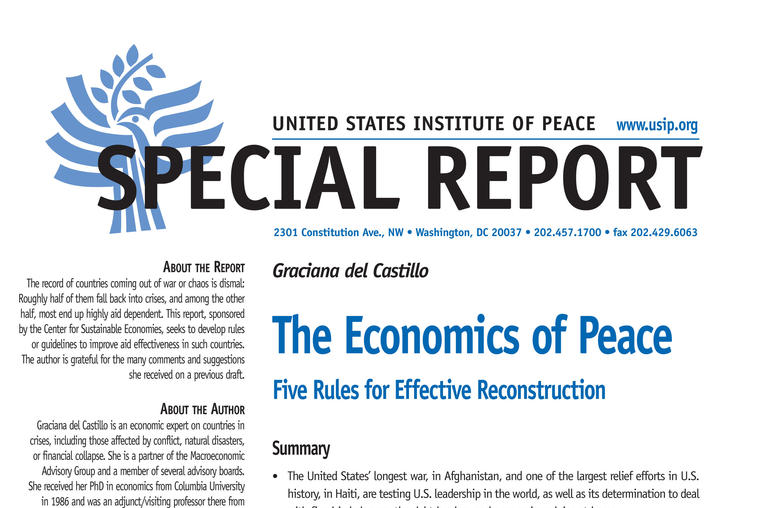
The Economics of Peace
Efforts to rebuild economies in postconflict zones around the world underscore a central lesson: development practices that work in peaceful countries often don’t apply to countries in transition.
‘Expeditionary Economics:’ How One Military Officer Links World Security with Economics
When it comes to creating stability and solving the world’s security problems, it may be counterintuitive that a military man believes that the power of the economy – and not the military. But indeed he does.
Haiti's Progress
Robert Maguire, chairman of the USIP Haiti Working Group and professor at the Elliott School of International Affairs at George Washington University, visited Haiti earlier this month to meet with government officials concerning Haiti’s current political impasse. He provides an update on the situation.
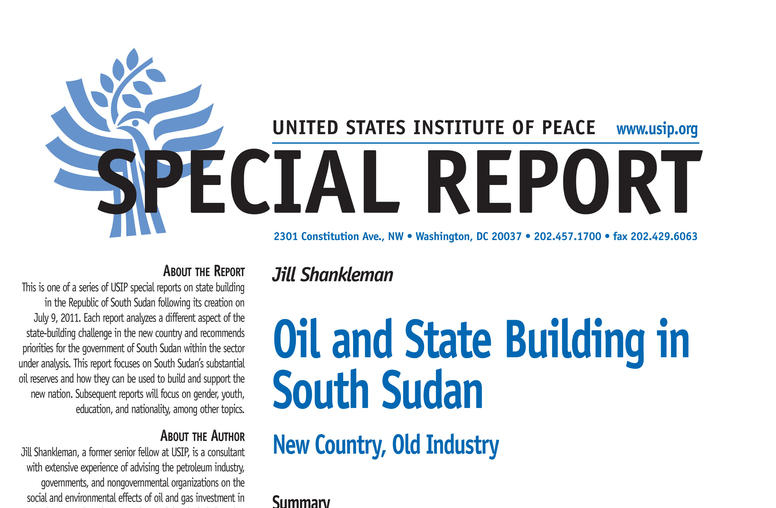
Oil and State Building in South Sudan
In a new country whose budget will rely almost entirely on oil for revenue, South Sudan must school up on the state of its existing reserves and the obstacles facing future oil exploration.
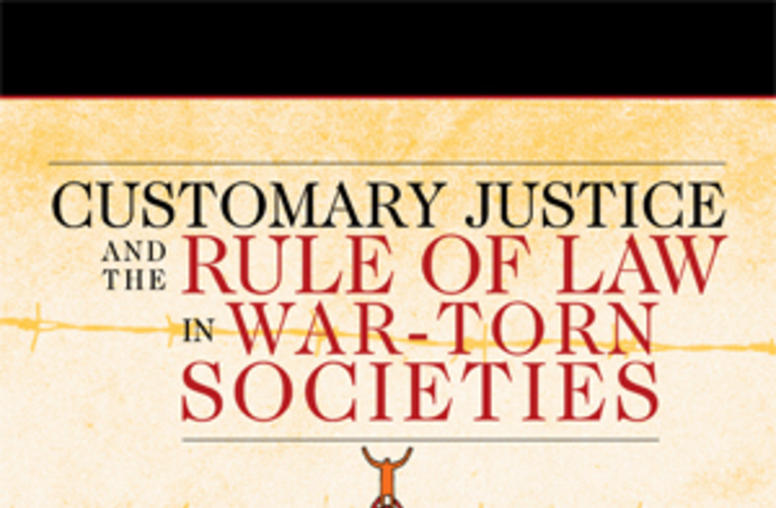
Customary Justice and the Rule of Law in War-Torn Societies
Customary Justice and the Rule of Law in War-Torn Societies presents seven in-depth case studies that take a broad interdisciplinary approach to the study of the justice system. Moving beyond the narrow lens of legal analysis, the cases—Mozambique, Guatemala, East Timor, Afghanistan, Liberia, Iraq, Sudan—examine the larger historical, political, and social factors that shape the character and role of customary justice systems and their place in the overall justice sector.